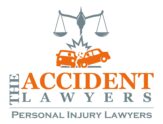Rear-end accidents are among the most common types of car crashes in Alberta. In fact, Alberta Transportation statistics report that rear-end collisions make up a significant portion of all car accidents in the province. Whether you’re driving in Calgary, Edmonton, or other parts of Alberta, being involved in a rear-end accident can leave you with injuries that may not always be apparent immediately after the crash. Knowing what to do after a rear-end accident can protect your health, your legal rights, and your ability to receive fair compensation for your injuries.
Common Injuries in Rear-End Accidents
Rear-end accidents can result in a range of injuries, from minor to severe. The most common injuries include:
- Whiplash: One of the most frequently reported injuries in rear-end collisions, whiplash occurs when the head is forcefully jerked back and forth. Symptoms may not appear immediately but can include neck pain, headaches, and stiffness.
- Back and Spinal Injuries: The impact from a rear-end crash can lead to herniated discs, sprains, and other spinal injuries that may require long-term medical treatment.
- Concussions and Head Injuries: Even a minor rear-end accident can cause a concussion if your head hits the steering wheel, window, or headrest.
- Fractures: Depending on the severity of the crash, broken bones, especially in the arms, wrists, and ribs, can occur.
Steps to Take After a Rear-End Accident in Alberta
If you’ve been involved in a rear-end accident, there are specific steps you should follow to protect yourself legally and medically:
- Seek Immediate Medical Attention: Even if you feel fine right after the accident, it’s essential to get checked by a healthcare professional. Injuries like whiplash or concussions may not show symptoms immediately but can develop in the hours or days following the crash. Failing to seek medical attention could hurt your personal injury claim later.
- Report the Accident: In Alberta, all motor vehicle accidents must be reported to the police if injuries are involved or if there’s significant property damage. Ensure that you provide accurate details about the accident, and obtain a copy of the police report for your records.
- Gather Evidence at the Scene: If possible, document the scene of the accident by taking photographs of both vehicles, the road conditions, and any visible injuries. Obtain the contact information of any witnesses, as their statements may be crucial in determining fault.
- Contact a Personal Injury Lawyer: Rear-end accidents can lead to disputes over liability and compensation, especially if the other driver tries to deny responsibility. A personal injury lawyer in Calgary or Edmonton can help you understand your legal rights, negotiate with insurance companies, and ensure that you receive fair compensation for your injuries.
- Notify Your Insurance Company: Under Alberta law, you are required to report any motor vehicle accident to your insurance company. Be sure to provide accurate and complete information about the crash, but avoid making statements about your injuries until you’ve spoken with a lawyer.
Alberta Law and Rear-End Accidents
In most cases, the driver of the vehicle that rear-ends another car is considered at fault. According to Alberta’s Traffic Safety Act, drivers are required to maintain a safe following distance and be prepared to stop to avoid a collision. However, there are exceptions, and the at-fault driver may dispute their liability.
Your own insurance company will cover your immediate medical expenses, regardless of who caused the accident. However, if you’re injured, you may still be able to pursue additional compensation through a personal injury claim.
Compensation for Rear-End Accident Injuries
If you’ve been injured in a rear-end accident, you may be entitled to several types of compensation, including:
- Medical Expenses: This includes the cost of hospital visits, surgeries, physical therapy, and any ongoing treatment related to your injuries.
- Loss of Income: If your injuries prevent you from returning to work, you can claim compensation for lost wages and reduced earning capacity.
- Pain and Suffering: Injuries from rear-end collisions can cause significant physical pain and emotional distress. Compensation for pain and suffering can help alleviate the impact on your quality of life.
Why You Need a Personal Injury Lawyer
Dealing with the aftermath of a rear-end accident can be overwhelming, especially when you’re coping with injuries and trying to navigate the legal system. Hiring a personal injury lawyer in Calgary or Edmonton can make a significant difference in the outcome of your case. An experienced lawyer will:
- Assess Your Case: Your lawyer will review your accident and injuries to determine the best legal strategy for obtaining fair compensation.
- Negotiate with Insurance Companies: Insurance companies often attempt to minimize settlements. A personal injury lawyer can negotiate on your behalf to ensure you receive the compensation you deserve.
- Prove Fault: If the other driver disputes liability, your lawyer will gather evidence to prove the other driver was at fault for the accident.
Conclusion
Rear-end accidents are a common cause of injury in Alberta, and the consequences can be long-lasting. If you’re involved in a rear-end collision, it’s essential to seek medical attention, document the accident, and consult with a personal injury lawyer to ensure your rights are protected. In Calgary and Edmonton, a skilled personal injury lawyer can help you navigate the legal process, negotiate with insurance companies, and pursue the compensation you deserve for your injuries.
For expert legal advice on rear-end accident claims, visit www.theaccidentlawyers.ca for a consultation today. We’re here to support you through your recovery and fight for your legal rights.


Pingback: Chronic Pain Injuries After a Car Accident - What To Know